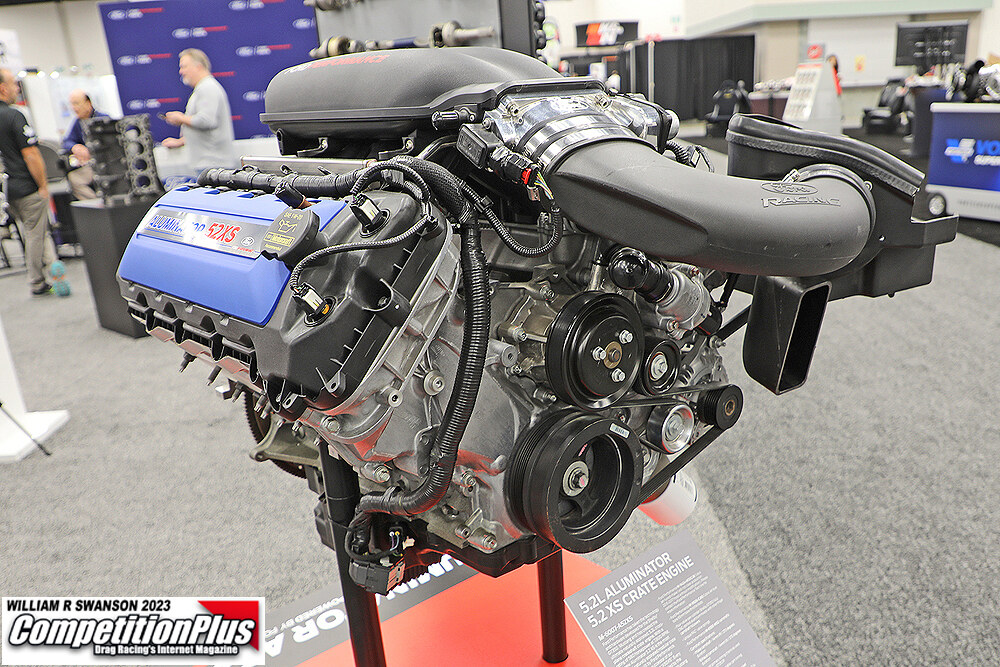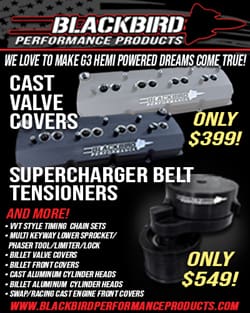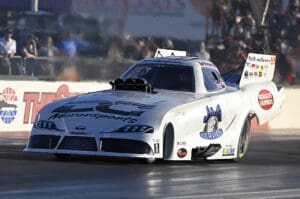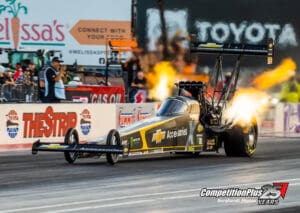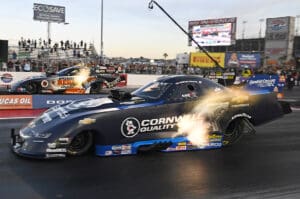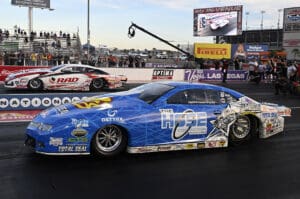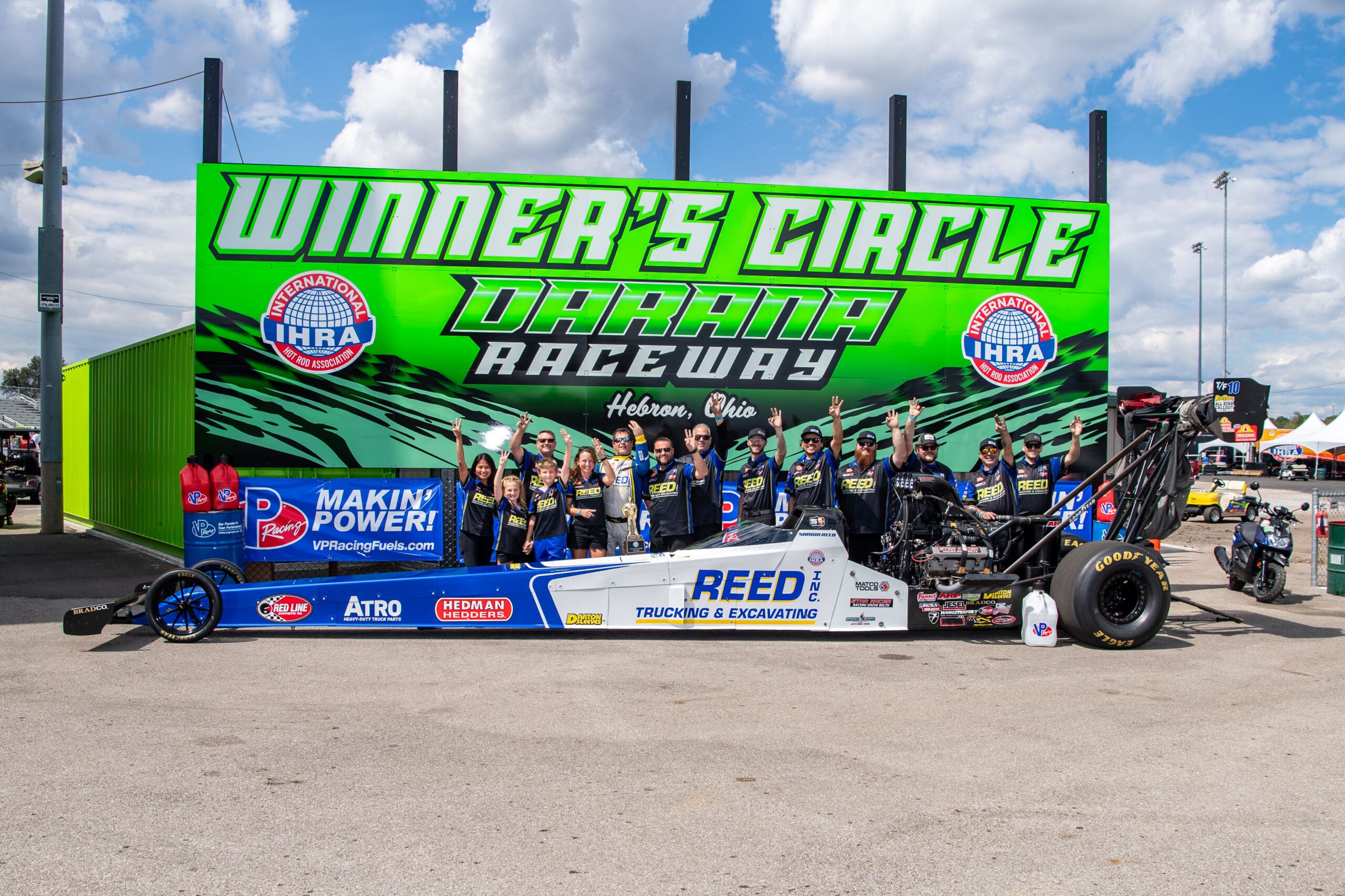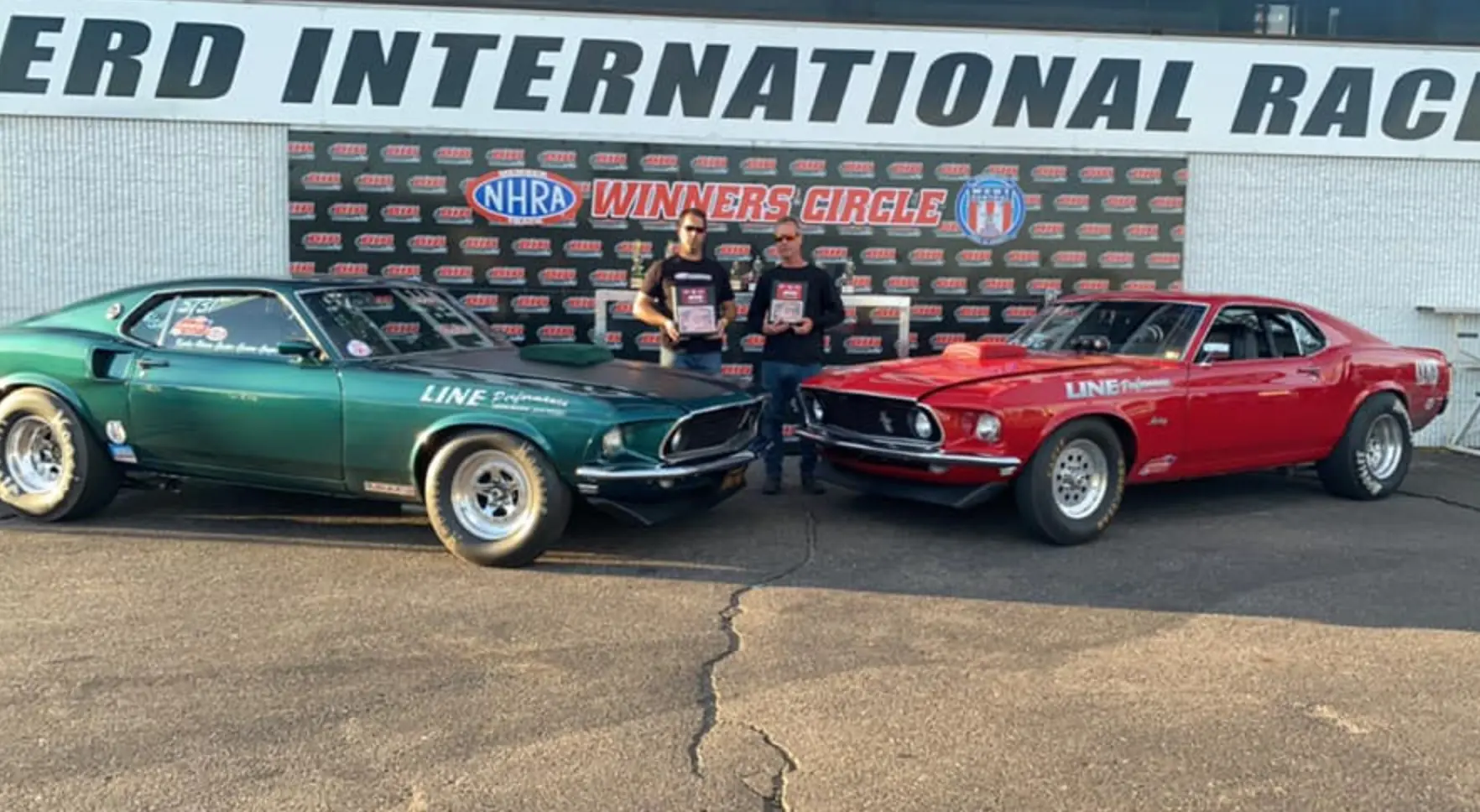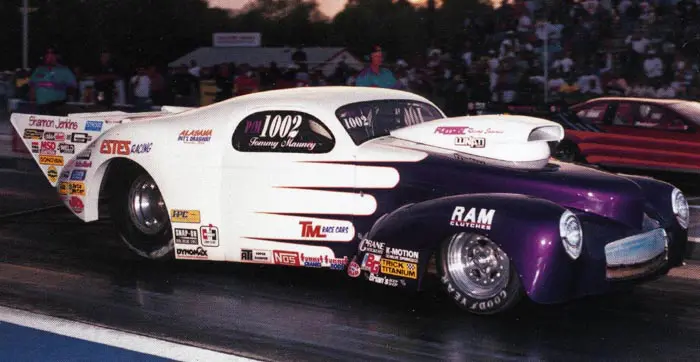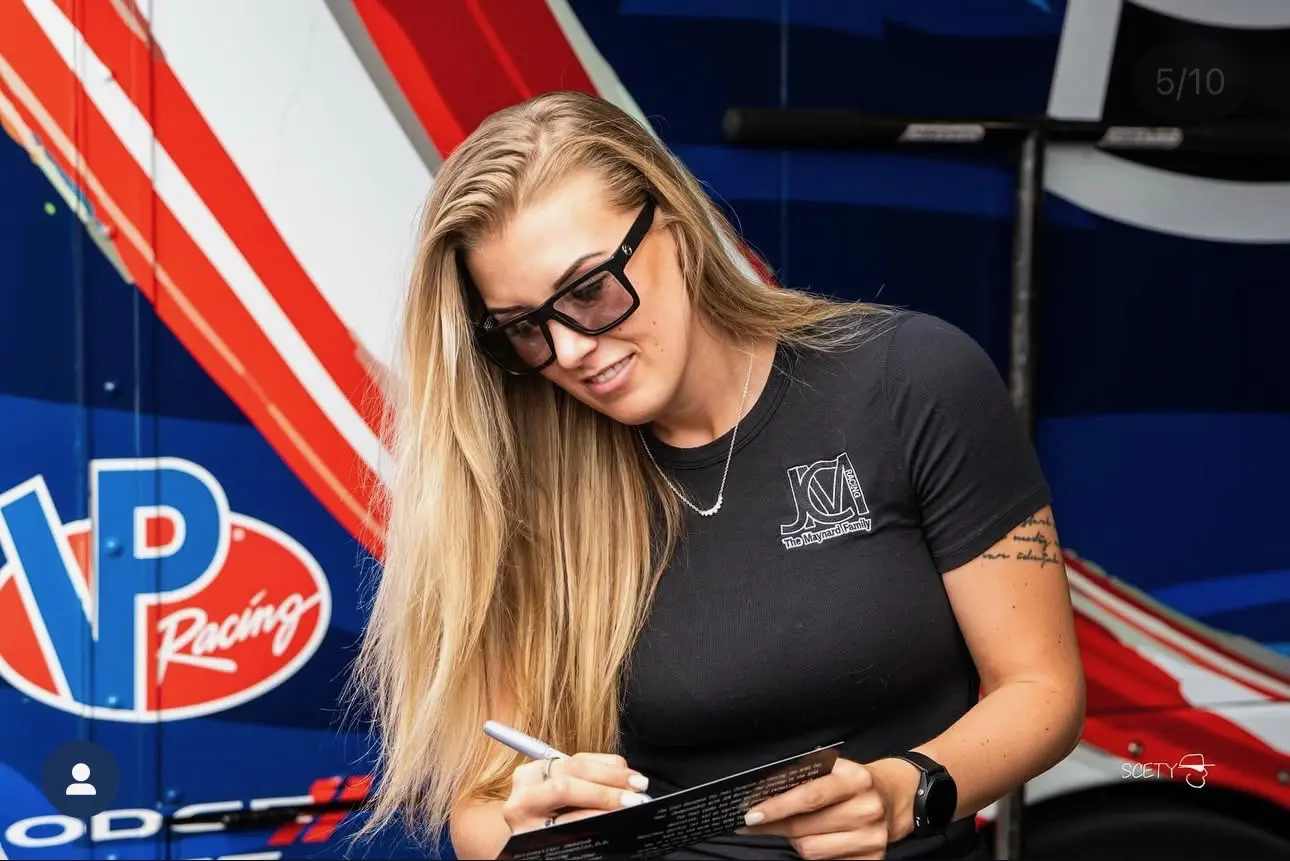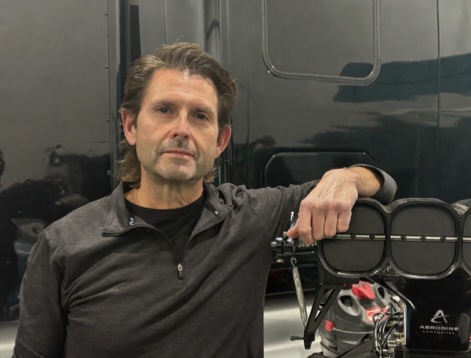 It was a simple exchange that happened almost like clockwork every evening at 6:30 PM EST or 30 minutes after quitting time in the Central time zone.
It was a simple exchange that happened almost like clockwork every evening at 6:30 PM EST or 30 minutes after quitting time in the Central time zone.
Rickie Smith’s phone would ring, and on the other end of the conversation would be the same question, “What’s for supper?”
Like the 5:10 Amtrak train rolling through town, Smith’s friend, who happened to be his race car chassis builder Jerry Bickel, would dial the King, NC-based drag racing champion’s phone and make the all-important inquiry.
No, Bickel wasn’t coming over for supper but knowing how important the meal is in the southern culture, he knew the importance of this piece of data.
Yesterday, on April 5, 2023, after almost a decade of the routine, Smith’s phone didn’t ring. Smith called Bickel, figuring he’d initiate the important conversation piece, but there was no answer. This was odd for Smith since Bickel always answered his calls.
Time passed, and Smith tried again. Once again, no answer.
Smith’s phone rang shortly after that, and it was a call he wished he’d never gotten. Then, the Bickel Family notified Smith that his longtime friend had passed away.
The drag racing community awoke to the news that 75-year-old Bickel had passed away after a year of battling health issues. Bickel, named Melvin Gerald Bickel, was part of the original AHRA heads-up Pro Stock program in the late 1960s. His drag racing championship record as a fabricator was impeccable, and will be forever known as building the original Pro Modified national event winner, a Camaro driven by Ed Hoover.
“When I looked at Jerry, even though he was close to my age, I looked at him as a father,” Smith said. “He was just that kind of person. There’ve been a lot of good times with me and Jerry. He appreciated life and he just understood how broke a racer could be because he’d been there at one time, and he was always helping someone.”
Jim Yates was another one of those close to Bickel who understood his friend’s innate ability to be a champion for the underdog. Bickel and Yates raced NHRA Pro Stock and won two championships in the 1990s.
“I think that’s how we got started together because I was an underdog,” Yates admitted. “I didn’t know my butt from third base. And truthfully, we learned together. Jerry was a very smart guy, but he had never really raced a Pro Stock car before. Everything we did, we did together and we learned and we developed and we got to be a really good team together as far as being able to accomplish it.
“Everything we learned, we learned ourselves. We didn’t know anything. We came at it with a totally blank slate. And he liked that. We were racing against big dogs. We were racing against Bob Glidden and Warren Johnson and the Dodge Boys. And the further we went, the more we realized you know what? We can beat these guys.
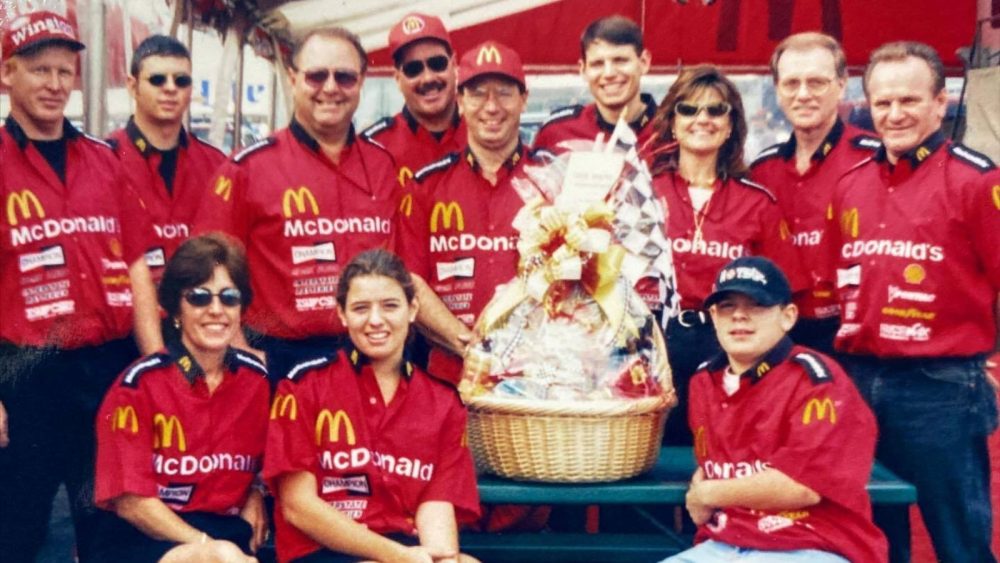 “Jerry just had that attitude. You know Jerry, laughing and the things we did. We did some crazy things in our lives and I think racing with Jerry was, what did we say? You got to enjoy the journey, not the destination. We won races, and we won championships, but that wasn’t the most memorable part. The part was getting there and enjoying the time we had together and the dinners we ate and the beers we drank and the places we went.”
“Jerry just had that attitude. You know Jerry, laughing and the things we did. We did some crazy things in our lives and I think racing with Jerry was, what did we say? You got to enjoy the journey, not the destination. We won races, and we won championships, but that wasn’t the most memorable part. The part was getting there and enjoying the time we had together and the dinners we ate and the beers we drank and the places we went.”
The memorable Bickel gladly accepted the nickname that Toni Yates bestowed upon him – Jerr-Bear.
“The journey was amazing, and Jerry made it amazing,” Yates added. “He was just that kind of guy. He was happy. You know Jerry. Happy laughing could make light out of anything that went wrong.”
Now, today many of his friends remember those moments and smile through the tears because, as they say, “That’s what Jerry would want.”
“He’d do anything for anybody,” Pat Musi said. He was just a good friend. We talked all the time. So it’s a tough one, man. The whole family’s just upside down right now. He was like a brother, and when it came to business stuff, I’d pick his brain every chance I could. We’d talk about the world, everything.”
One didn’t necessarily need to be a customer for Bickel to offer assistance. He was even willing to help those who had taken their business elsewhere yet felt confident in his integrity to help.
“Jerry was a friend that would do anything for anybody,” Yates said. “I talked to him on the phone, and he’d say, ‘Jim, you just don’t know how many people I talk to weekly. They call me up, and I help him with their car.”
“And whether they bought a car from him or not, or whether they’re building a car, Jerry would always answer the phone and always talk until you were satisfied. And sometimes that would take hours.”
When you made friends with Bickel, you were fast-tracked, frequently, into the family.
“He was a businessman now, you got what you paid for, but if you needed something, believe me, he would do it,” Musi said.
“I bought one of Rickie’s old cars, and Jerry kind of helped me with that because I had ordered a Ford Probe from him,” Yates recalled. “I got to know Jerry, and he really took a liking to me. I don’t think I ever went to a race the first eight years that I didn’t have Jerry working with me. He just came to every race and was like a crew chief, and we collaborated on everything, and we drove cross country in motor homes together.
“Everything we did, it was like family, except for we didn’t fight like family does. And when I bought a competitor’s car, it never slowed Jerry down one bit. ‘You need any help, just call me.’ it wasn’t a business relationship. It was a friendship. And he was like a brother. And our kids did stuff together, and it was just so much family in being involved with him.”
It was hard to notice Bickel was a forward-thinker and an innovator. Iconic drag racing artist Greg Ozubko recalled his first interaction with Bickel.
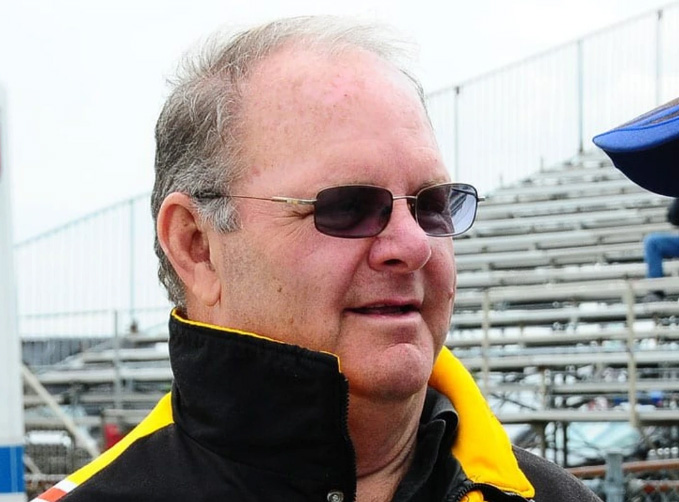 “In 1986, I received a call from Jerry Bickel who said, ‘I build these great race cars, but most people never see all the craftsmanship because it’s under the body, so I want the outside to look as great as what’s underneath….so I want you to do the paint schemes,” Ozubko recalled. “That began a working relationship with us that never ended. Over the years, we have done countless paint schemes for his customers’ cars, probably numbering several hundred. Also, things like logos, his helicopter, boats, and many others, not to mention numerous t-shirt designs. He always had time for me and always was a pleasure to deal with. In later years, we talked a whole lot more about life than race cars and I’ll miss those chats.”
“In 1986, I received a call from Jerry Bickel who said, ‘I build these great race cars, but most people never see all the craftsmanship because it’s under the body, so I want the outside to look as great as what’s underneath….so I want you to do the paint schemes,” Ozubko recalled. “That began a working relationship with us that never ended. Over the years, we have done countless paint schemes for his customers’ cars, probably numbering several hundred. Also, things like logos, his helicopter, boats, and many others, not to mention numerous t-shirt designs. He always had time for me and always was a pleasure to deal with. In later years, we talked a whole lot more about life than race cars and I’ll miss those chats.”
As Musi saw it, Bickel epitomized the spirit of marching to the beat of his own drum.
“That’s how he got to where he was,” Musi said. “He didn’t copy people’s stuff; he got copied. He was always thinking of a better mousetrap.”
“People don’t understand; Jerry had done his own designs on the computer,” added Smith. “He could draw his own blueprints. If he needed something with that water jet done, he could draw the blueprint himself and send it over to the water jet. And he’d done a lot of his own ads. He’d done all that stuff himself.”
Drag racing has lost an irreplaceable part of its soul with Bickel’s passing, and that’s how those closest to him will always see it.
“Jerry’s an icon,” Yates said. “His chassis business is tremendous, and it’ll continue on, I’m sure. Just like the people he built with our team, he was a friend, and people knew he was a friend, and people would go above and beyond for a friend. The people he assembled there at Jerry Bickel Race Cars are people he took care of for years and years and developed a friendship with. They have a commitment to JBRC and to Jerry.
“I’d say we’ve lost a friend, a guy you could call up. He would call me every race we’d go to. So the racing community, if you want to say we lost a good chassis builder, that’s one thing, but I think we lost a friend. A friend.”
And as Smith sees it, the kind of friend you’d love to have supper with.
OFFICIAL OBITUARY https://www.baue.com/obituaries/melvin-bickel?fbclid=IwAR0-5aJZb9nM2zY6F33UsRTSYM1BolsplrxS9epmzFKxW6hHYwYaMIgi4Ps















